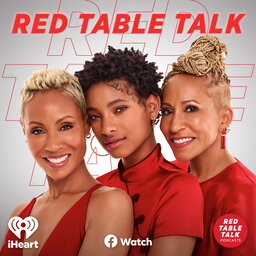"The World Hated Me" - Constance Wu Back From the Brink
“Crazy Rich Asians” star Constance Wu vanished from the spotlight three years ago. Now, she’s at the Red Table for an emotional conversation about the unrelenting backlash from ‘careless tweets’ that nearly cost her her career… and her life. Constance reveals harrowing stories from being sexual harassed by her boss, a yearslong estrangement from her mother, and the devastating pain of being ostracized by her own community.
 Red Table Talk
Red Table Talk


